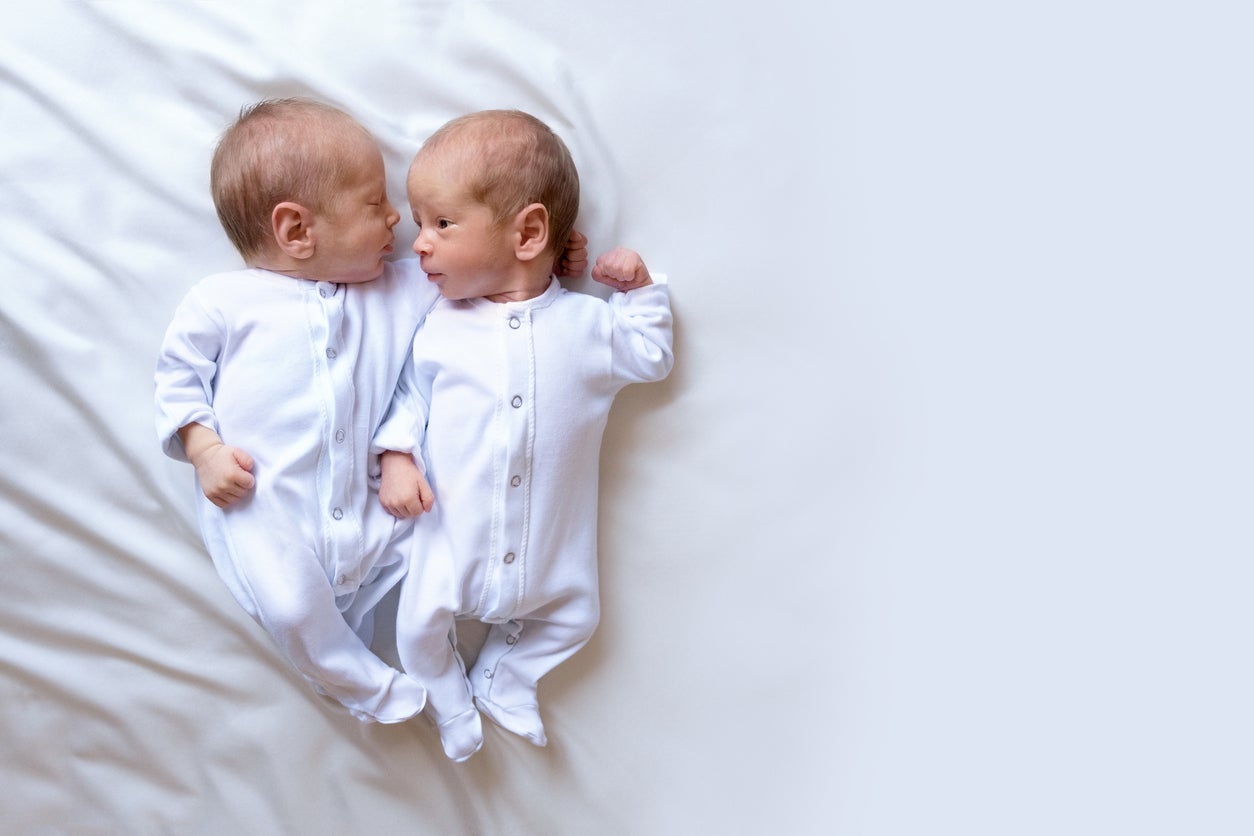Mothers of twins are not more fertile than other women – just lucky, scientists say
Twins - or ‘twinning’ - in humans usually occurs in about 1-3 per cent of pregnancies

Women who give birth to twins are not more fertile than other mothers, according to a new study.
A team of international scientists conducted a detailed analysis of 100,000 births from pre-industrial Europe.
Previous research had suggested that females who have twin babies are more fertile, they said.
Giving birth to twins - or "twinning" - in humans usually occurs in about 1-3 per cent of pregnancies.
Twins are born in all populations despite being associated with a much higher risk of natal and postnatal health issues for both the mother and her children than single pregnancies.
One common explanation for this has been that survival risks brought by twinning are partly hidden from natural selection because twinning comes with higher fertility, the researchers said.
The idea is that women who are more fertile than average are also more likely to release more than one egg when they ovulate – making twinning a marker of high fertility.
Many studies analysed demographic data and obtained results consistent with this view.
However, the new study, published in Nature Communications, shows that the former analyses have been flawed, the researchers said.
"Previous studies are problematic because they can not tell us whether mothers with twins give birth more often because they are especially fertile, or because giving birth more often increases the chance that one of these births is to twins,” Alexandre Courtiol, principal investigator, from the Leibniz Institute for Zoo and Wildlife Research in Germany, said.
The new results show that twinners are not unusually fertile, the researchers said.
Previous science had mixed up cause and effect, they added.
“If a mother gives birth more often, it is more likely that one of these births is to twins – just like you are more likely to win if you buy more lottery tickets, or to be in a car accident if you drive a lot,” Ian Rickard from Durham University and first author of the study, said.
When the “lottery ticket effect” is taken into account, the authors found that mothers more likely to have twins actually gave birth less often – a result that contradicts previous findings.
For their study, the team of 14 scientists combined large datasets of birth outcomes from several parts of pre-industrial Europe (today's Finland, Sweden, Norway, Germany and Switzerland).
“All these data originate from old parish records that have been meticulously digitised and transcribed”, explains co-author Virpi Lummaa from University of Turku, Finland.
“To avoid the statistical trap that plagued former studies, we also had to deploy efficient and carefully calibrated statistical procedures,” adds co-author François Rousset from the Institut des Sciences de l'Evolution in Montpellier, France.
The researchers said their findings would help academics and healthcare professionals better understand fertility.
However, co-author Erik Postma from the University of Exeter in the UK points out that, "such study designs ignore the multitude of factors influencing how often a woman gives birth, which will mask any genuine differences in physiology between mothers with and without twins".
In short, comparing groups of mothers with twins to groups of mothers without may hide the effects of twinning and fertility genes where they exist, or create the illusion of these if they do not exist.
“There is still much we do not understand about twinning, but our study suggests that twinning has not been eliminated by natural selection for two reasons.
"First, twinning is a consequence of double ovulation, which compensates for reproductive ageing and benefits all but the youngest of mothers.
"Second, when the risk of early mortality of twins is not too high, twinning is associated with larger family sizes although women with twins give birth less often. This is because twin births bring two offspring rather than one,” concludes Mr Courtiol.






Join our commenting forum
Join thought-provoking conversations, follow other Independent readers and see their replies
Comments